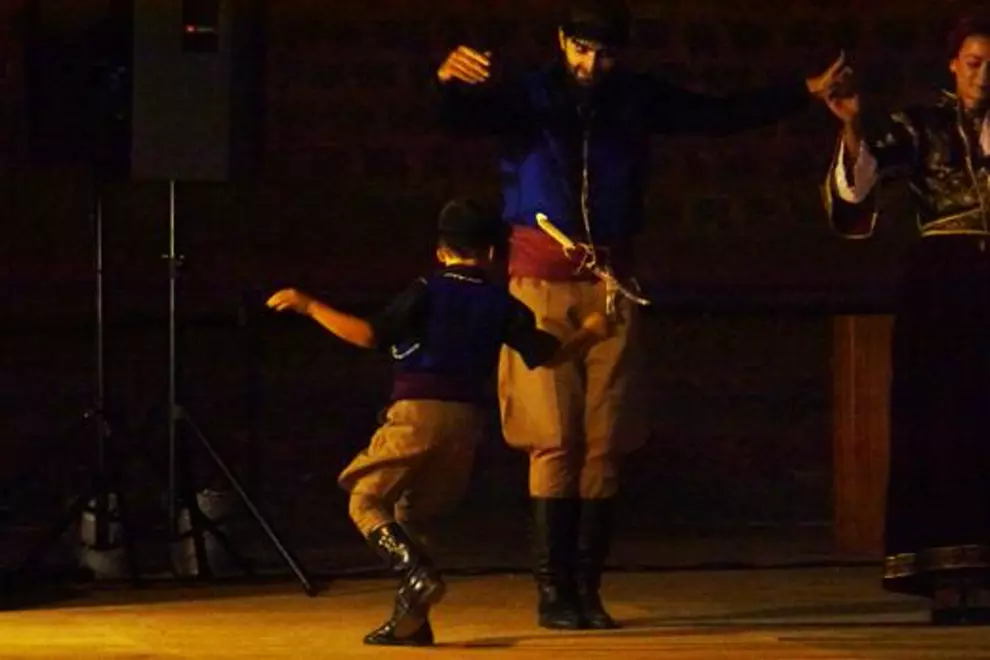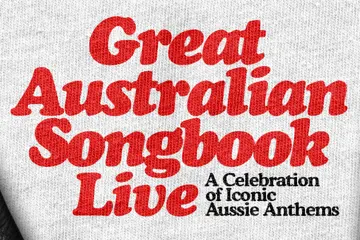The restaurant was in a ruin. Perhaps not a Minoan ruin but a hollowed out stone-walled building with no roof, green vines and creepers growing in and out of cracks and spreading across walls that varied in heights in different places, and no doors or windows to keep out the stray cats. We got the tip from a local, which, upon hearing our accents didn't stop the wait staff from giving us tourist-tailored food, but it did mean that everyone in the restaurant was actually if not Cretan, at least Grecian. And this became most obvious when two men, placed at a table in a corner, picked up a guitar and a bouzouki and began to sing.
Now, this restaurant was packed. Families, couples, and large groups of young people in their twenties and thirties, enjoying wine and food and laughter. I kept finding myself drawn away from our table and gazing at gorgeous, golden, Greeks, and what I loved the most was that when the musicians played, they all sang along. Entire tables ceased their chatter, people swayed slowly from side to side with gentle smiles and dreamy looks in their eyes. These songs were old songs, songs their grandparents had sung and perhaps older, and they all knew them. They knew them and loved them and were moved by them. Like, visibly.
I turned back to our platter of fish-battered-the-way-Brits-like-it and asked my Anglo-Australian, Greek-Australian, and Greek-Cypriot-Anglo-Australian friends - do we have songs like this back home? Is there an “Australian folk music” that gets passed down through the generations? A song that most Australians know the words to and feel a sense of heady love and pride upon hearing? A style of dance we all do at weddings and various festivities?
We had been to a night of traditional Cretan dancing the day before. Hoards and hoards of people flocked to sit beneath the old Venetian wall and watch. The little-est kids danced in the aisles - their tiny hands raised in the air, their little fingers trying to produce a clicking sound - mimicking the way they'd seen their elders do it. I - and many people I know - remember a few steps to the Nutbush and I have been to weddings where the only hand actions made were devil horns rhythmically worshipping the sound of Iron Maiden. Please, please don't tell me this is the folk culture we have been developing since the declaration of terra nullius.
“What about The Wild Colonial Boy?” I asked, and the two at the table who had spent their entire lives in Sydney had never heard of it. The response from my fellow rural-raised friend was - “Yeah, but who actually knows the words to that?”
It's funny - not so much haha - because about 180 years ago, The Wild Colonial Boy was a song that most Australians knew the words to. They knew them so well that - after it was banned for being seditious - they changed the words and the melody over and over again so they could continue to sing it. John (Jack) Donohoe was Australia's Robin Hood - robbing the rich and helping the poor (or at least not robbing the poor), the people fed and sheltered him, the authorities hunted him, he narrowly escaped death more than once - you know, all that bushranger stuff - and somebody wrote a ballad about him that the people-folk refused to let go of. Jack Donohoe became Jack Doolan and Jack Duggan and the ballad developed nuances that allowed the people to keep singing it even though it was outlawed. Why did they want to sing it so badly? Because singing it was giving the bird to England, it was giving the bird to authority, and for these reasons, it was probably pretty unifying. And then somewhere along the way - probably with all the Harry Powers and Dan Morgans and Ned Kellys - this song was lost to us. Well, other than being used in advertisements for produce coming out of Castlemaine (Victoria, not Ireland).
I got to thinking and Googling about Australia's lack of a unifying folk-culture. Most people of my own generation - give or take fractions from the above and below - who I spoke to, agreed that if they were in a room and Powderfinger's My Happiness came on, they would know most of the words and feel some sense of 'home'. But our parents probably wouldn't, they might go for more of a Click Go The Shears or Waltzing Matilda. Waltzing Matilda could work, it's got swag. Well, a swagman. No? No, because the current generation probably doesn't know what a swagman is, or a billycan, and I have been asked more than once - 'what's a jumbuck'?
Tie Me Kangaroo Down Sport? I Was Only Nineteen? Khe Sanh? Took The Children Away? Treaty? Botany Bay? I'm sure that last one is sung by every Greek, Lebanese, Slavic, and Anglo Australian on their way to La Perouse every Australia Day. “Too-ral, li-ooral, li-addity - re - you leh - Maaaate.”
I understand that current Australia is a new nation in the process of developing a (healthy, fair, and realistic) national identity so I went and looked at whether or not Israel has a folk music/dancing culture. And they do, yes they do. They actually spent time creating one because they know that kind of thing is important when it comes to solidifying a nation's idea of itself. However, when I looked up “Australian folk dancing” I nearly fell out of my chair. How could I have forgotten all those “bush dances” in woolsheds?! Oh I know - because once you hit double figures, doing the heel and toe really loses its appeal. And can you believe my horror when a certain online encyclopaedia referred to the Nutbush as being a line dance that “gained massive popularity in Australia”. Nutbush people! Nutbush. We are the nation where the Nutbush was really, really popular. Now there is a school assembly I'd almost forgotten. Damn my enquiring mind.
So, maybe there is something in us creating a new Australian folk culture, one that reflects the kind of people we are. Dances we can do at weddings and various festivities. Songs we can sing around campfires for generations. Something that, when heard, stops us mid conversation at the dinner table because it's so moving and lyrically beautiful and distinctly ours, we have to sway from side to side all happy and dreamy-eyed. But also, something that will last. Because, while you're all probably thinking of numerous examples - do/will they stand the test of time? Or will they fade away like The Wild Colonial Boy?
Don't miss a beat with our FREE daily newsletter
















